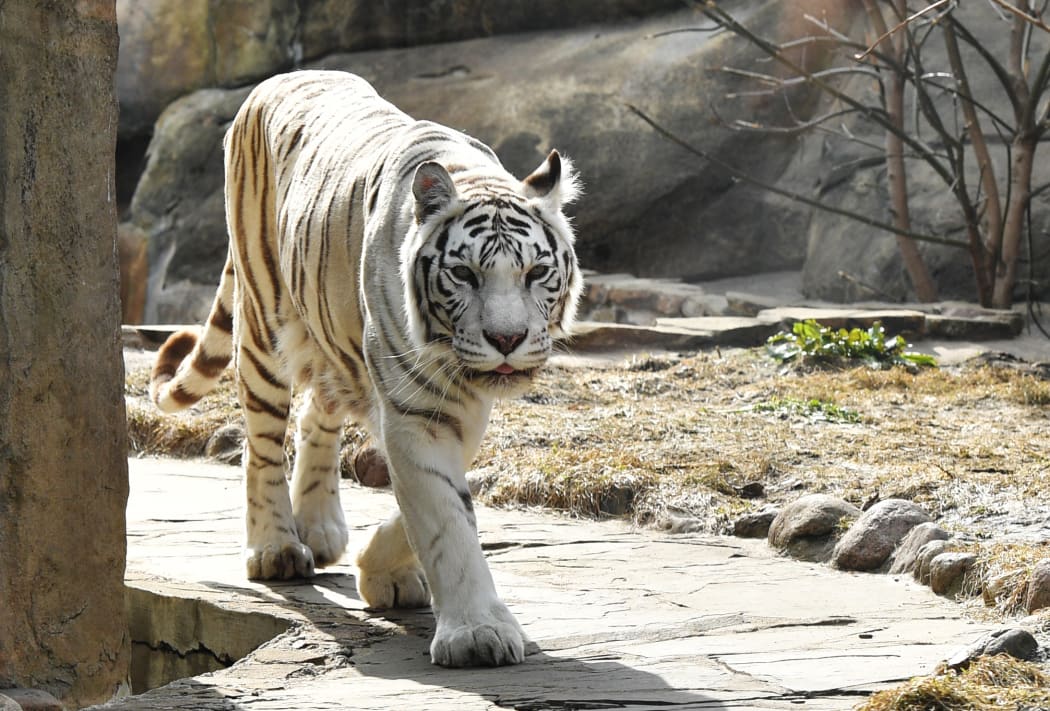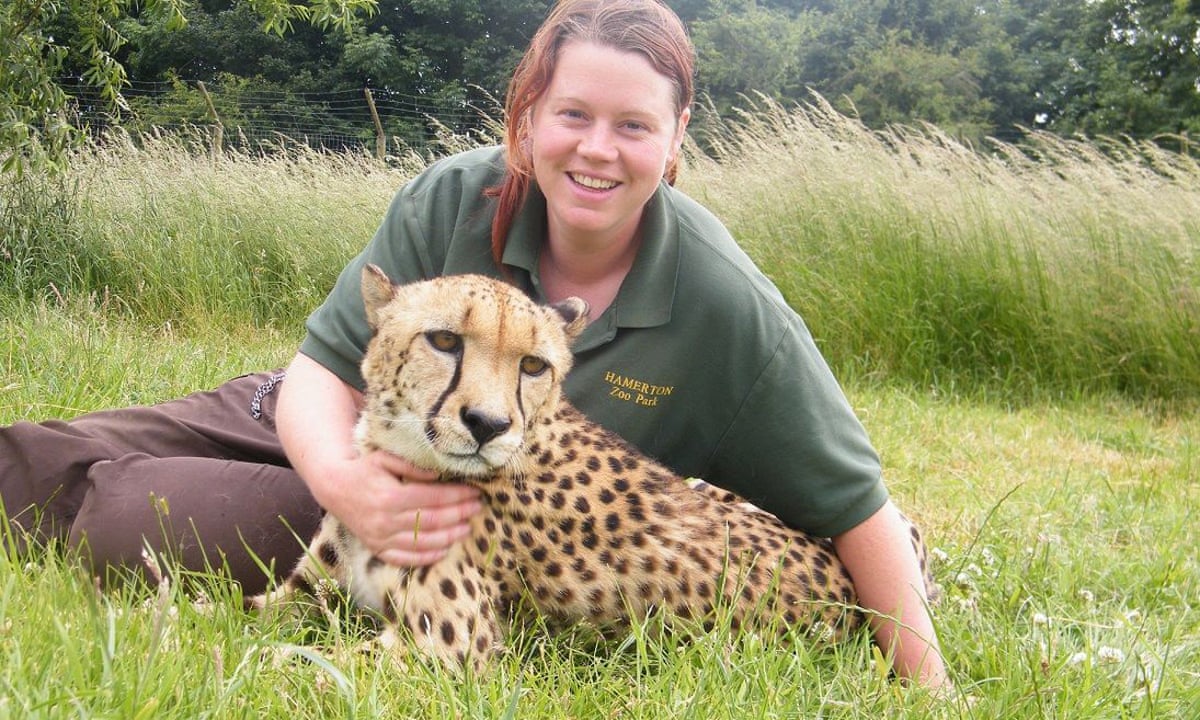How To Become A Zoo Keeper?
페이지 정보

본문
"The greatness of a country and its ethical progress can be evaluated by the way its animals are dealt with." - Mahatma Gandhi
Do you enjoy animals and dream of operating in a zoo? Zoo keepers are key in safeguarding wildlife and taking care of animals. At locations like the Zoological Society of London (ZSL), over 20,000 animals get the care they need from specialists.
To become a zoo keeper, you need effort, education, and a love for zookeeper animals. This task is amazing, letting you deal with many species and help with important conservation work. If you're into wildlife or animal welfare, zookeeping might be perfect for you.
Starting your zoo keeper career means discovering what's required. This guide will cover education, experience, and more. It's all you require to know to start a fulfilling zookeeping profession.
Comprehending the Role of a Zookeeper
Exploring what a zookeeper does reveals a role full of obstacles and benefits. They concentrate on animal welfare and conservation. Zookeepers work hard to keep animals healthy and pleased in their care.
Daily Responsibilities and Tasks
A zookeeper's day is filled with important jobs:
- Preparing meals that meet each animal's dietary needs
- Cleaning up enclosures to keep them clean and safe
- Supervising animal health and behaviour
- Offering medicines and treatments as needed
- Creating activities to keep animals mentally sharp
Workplace and Conditions
Zookeepers work outside in all kinds of . They handle both indoor and outdoor areas. The task requires being healthy and able to deal with the demands of taking care of animals.
"Being a zookeeper is more than a task - it's an enthusiastic dedication to animal care and conservation."
Types of Animals and Specialisations
Zookeepers can specialise in many animal groups:
- Primates
- Big cats
- Marine mammals
- Reptiles
- Birds
Your function may involve working with 2-5 various animal species. This needs a lot of knowledge and the ability to adjust.
Necessary Skills and Personal Qualities for Zoo Keeping
To be a top zookeeper, you need more than simply a love for animals. Your job will be difficult and need you to deal with animals and individuals well. You'll likewise need to understand animal behaviour.
What zoos look for in people consists of:
- Exceptional persistence and emotional strength
- Strong physical conditioning and endurance
- Keen observation abilities
- Capability to remain calm under pressure
- High level of empathy towards animals
Getting hands-on experience is key to mastering this role. You'll require to reveal:

- Advanced understanding of animal care techniques
- Proficiency in animal handling and safety procedures
- Efficient interaction with both animals and human visitors
"A fantastic zookeeper connects science, compassion, and preservation in every interaction with animals."
You need to learn about animal nutrition, behaviour, and standard veterinarian care. The majority of zookeepers learn through training, offering, and zookeeper continuous learning.
Zookeeper work is not simply a job. It's a big dedication to teaching about wildlife and helping preservation. Your passion and hard work will make you stick out in this fulfilling career.
How to Become a Zoo Keeper
Beginning a career as a zookeeper needs cautious preparation and education. You should initially comprehend the instructional needs and training courses. These will turn your love for animals into a task.
Educational Requirements
To be a terrific zookeeper, you need a strong scholastic base. Most jobs look for certain credentials:
- At least 5 GCSEs at grade 4 or above, consisting of English, maths, and science
- A levels or college qualifications
- A college degree in biology or animal science
- Level 3 Diploma in Animal Management
Required Certifications
Getting special certifications can actually assist you in your zookeeper career. Essential ones consist of:
- Diploma in Management of Zoo and Aquarium Animals (DMZAA)
- Zookeeping Level 3 Diploma (RQF)
- Animal managing certificates
- Emergency treatment certifications
Training Programs and Apprenticeships
Getting hands-on experience is type in zookeeper training. Many locations provide terrific possibilities:
- Unpaid apprenticeships at wildlife parks
- Internship programmes at widely known zoos
- Practical training at places like Colchester Zoo and Dartmoor zookeeper Zoo
- Offering to get real-world abilities
Pro tip: Create a detailed portfolio to reveal your animal care abilities. It will assist you in job applications.
Structure Relevant Experience in Animal Care
Gaining hands-on experience is crucial for those wanting to be zookeepers. The job is very competitive. So, it's essential to start building a strong base in animal care.

Your journey starts with finding ways to work directly with animals. This is a strategic action.
"Experience is the very best teacher in animal care" - Wildlife Conservation Experts
Here are effective ways to get experience working with animals:
- Volunteer at regional animal shelters to establish fundamental animal managing abilities
- Look for internships at wildlife rehabilitation centres
- Check out part-time positions at veterinary centers
- Contact your local zoo for possible volunteer chances
Volunteering is a great method to discover animal behaviour and care. Many zoos and animal shelters are trying to find individuals who wish to learn. These locations use great chances to get hands-on experience and reveal your devotion to animal welfare.
Here are some tips to maximize your experience:
- Keep a record of your abilities and interactions
- Get in touch with professionals in animal care
- Request for recommendations and letters of recommendation
- Stay persistent and show your real passion
Remember, useful experience makes you stand out in the zookeeping world. Whenever you deal with animals, you learn more. This increases your chances of getting a job in animal care.
Career Pathways and Professional Development
Beginning a career as a zookeeper is amazing. It uses many possibilities to grow and specialise. Your journey starts with understanding the different paths in this field.
Entry-Level Positions
Entry-level jobs in zookeeping are a fantastic start. They give you hands-on experience. Zoos look for candidates with:
- Level 2 Diploma in Animal Care (minimum qualification)
- GCSEs in English and a clinical topic
- Volunteer experience at animal shelters or farms
Profession Progression Opportunities
As you acquire experience, your career can grow. You can move up to:
- Junior Keeper
- Senior Keeper
- Team Leader
- Specialist Roles
"Continuous learning and useful experience are essential to advancing in your zookeeping profession."
Specialised Roles
You can also select unique areas like:
- Conservation breeding programs
- Animal training
- Wildlife research study
- Educational outreach
About 25% of zookeepers get advanced degrees in zoology or animal preservation. Getting Level 4 qualifications can enhance your possibilities for senior roles and research study.
Working Hours and Physical Demands
Ending up being a zookeeper implies you'll work more than just regular hours. You'll deal with difficult physical challenges and require to be flexible, zookeeper consisting of weekends and holidays. Zoos are open every day, so you'll frequently work when others relax.
"Zoo keeping is not a common 9-to-5 task-- it's a lifestyle of dedicated animal care and commitment."
This job is physically demanding. You'll work outside in any weather, lifting heavy items over 50 pounds. Your tasks might consist of:
- Early early morning feeding schedules
- Cleaning animal enclosures
- Preparing specialised diet plans
- Conducting medical examination
- Maintaining complicated environments
Shifts can start as early as 5 AM and go late into the night. You'll be on your feet the majority of the time, moving in between animal zones. Weekends and holidays are part of the task, requiring great deals of endurance and dedication.

Despite the challenges, this job has fantastic rewards. You'll grow strong, both physically and emotionally. You'll likewise make remarkable connections with unbelievable animals.
Health and Safety Considerations
Being a zookeeper includes its own set of challenges. It's essential to understand how to keep both animals and staff safe. This suggests following strict health and wellness rules.
Zookeepers face a distinct environment where safety is crucial. Research studies show that health and wellness are now as important as the zoo's primary work.
Risk Management Strategies
There are several methods to handle threats in zoos:
- Daily checks of animal enclosures for dangers
- Counting animals at the start and end of shifts
- Seeing how visitors act near animals
- Being ready for emergency situations
Animal Handling Safety Protocols
Knowing which animals are most hazardous is crucial. Huge animals like rhinos can be very dangerous. There have been cases where zookeepers got seriously injured.
Security isn't just about wearing equipment - it's about knowing animal behaviour and staying alert.
Personal Protective Equipment
Zookeepers require to use the best gear, including:
- Special gloves for dealing with animals
- Strong shoes for zookeeper grip and security
- Clothes that protects versus germs
Getting vaccinated against illness like liver disease B and rabies is likewise key. It helps keep zookeepers healthy in their tough job.

Wage Expectations and Job Market
Thinking of a career in zoo keeping? It's crucial to learn about salaries and the job market. The field is growing, with more chances in the UK.
Let's take a look at what zoo keepers can make at different phases:
- Entry-level zookeepers start at about ₤ 14,000 a year
- Qualified ones make in between ₤ 16,000 and ₤ 22,000
- Senior zookeepers can earn up to ₤ 30,000 or more
The task outlook for zoo keepers is great. The sector is expected to grow by 5% in the UK by 2029. This implies around 3,910 brand-new jobs will be offered.
"The Association of Zoos and Aquariums supports expert development for zoo keepers," a report says.
Incomes vary based upon several things:
- Experience level
- Specialisation
- Where you work
- The zoo's size and type
While the pay might not be high, the happiness of working with animals is priceless. The typical income is around ₤ 17,000. But, overall earnings can be in between ₤ 13,000 and ₤ 27,000 a year.
Conclusion
Starting a career in animal care is an amazing journey. It requires dedication, passion, and a love for knowing. With over 350 zoos and wildlife places in the UK, there are numerous task opportunities. You'll get to work with remarkable animals and help secure wildlife.
To be a zoo keeper, you require more than simply love for animals. You should have a mutual understanding of biology, have the ability to interact well, and constantly wish to find out more. You'll gain hands-on experience, learn about animal welfare, and establish a deep regard for nature. About 3,000 individuals in the UK have found satisfying careers in this field.
Your success in zoo keeping originates from mixing science with a love for animals. Whether you're interested in mammals, birds, or marine life, this task lets you help with preservation. Every day will bring new obstacles and discovering opportunities that will improve your skills and knowledge.
If you enjoy animals and wish to assist safeguard wildlife, zoo keeping might be for you. Take on the difficulty, stay curious, and turn your enthusiasm for animals into a rewarding profession.
- 이전글토렌트 랭킹 25.03.17
- 다음글충북 정품 비아그라 구매 【 vCee.top 】 25.03.16
댓글목록
등록된 댓글이 없습니다.


